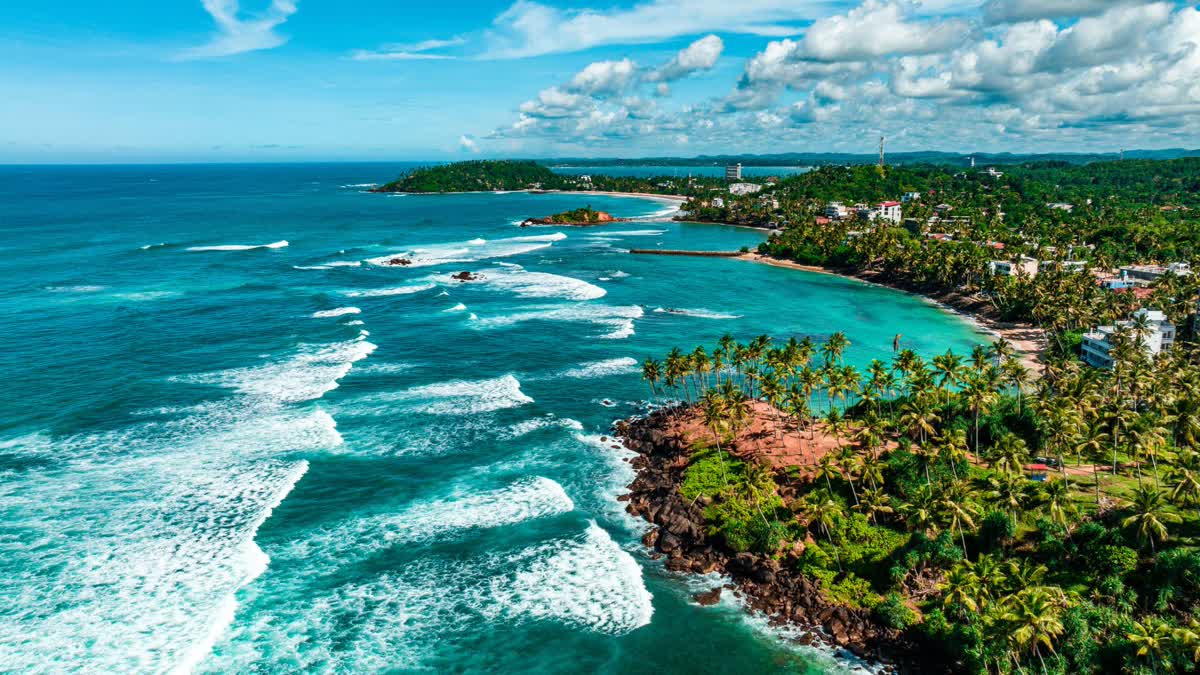New Delhi: In a move that underscores the complexities of regional geopolitics, Sri Lanka has extended its moratorium on the entry of foreign research vessels into its territorial waters.
The decision comes amid growing concerns from India over the presence of Chinese ships near its immediate neighbourhood. Sri Lanka’s move reflects its delicate balancing act between addressing India’s security apprehensions and maintaining its strategic and economic ties with Beijing.
Colombo’s decision comes close on the heels of new Sri Lankan President Anura Kumara Dissanayake’s trip to India earlier this week, his first bilateral visit since assuming office in September this year. During bilateral talks with Prime Minister Narendra Modi in New Delhi on December 16, Dissanayake gave the assurance that his government would not allow the use of Sri Lanka’s territory against India’s interests.
“As natural partners, both leaders underscored the common challenges faced by the two countries in the Indian Ocean Region and reaffirmed their commitment to work together in countering traditional and non-traditional threats as well as to ensure a free, open, safe and secure Indian Ocean Region,” a joint statement titled ‘Fostering Partnerships for a Shared Future’ issued following the talks read. “India being Sri Lanka’s closest maritime neighbour, President Disanayaka reiterated Sri Lanka’s stated position of not permitting its territory to be used in any manner inimical to the security of India as well as towards regional stability.”
Chinese research vessels, ostensibly engaged in scientific exploration, have been spotted in the Indian Ocean near Sri Lanka more frequently in recent years. India perceives such vessels as dual-use platforms capable of conducting surveillance and collecting sensitive data about the region’s maritime and military activities. These vessels, which are equipped with advanced sonar and tracking technology, are often seen near critical shipping lanes and undersea infrastructure that are vital to India’s economic and strategic interests.
In 2022, India had strongly protested when a Chinese survey vessel called the Yuan Wang 5 was allowed to dock at the Hambantota port in Sri Lanka. Though the ship was described as a research and survey vessel, security analysts said that it was also packed with space and satellite tracking electronics that can monitor rocket and missile launches. The ship was permitted to dock by then-President Gotabaya Rajapaksa a day before he fled the country amid an economic crisis.
In August last year, a Chinese ship claiming to be a research vessel docked at Colombo port ostensibly for replenishments. The Hao Yang 24 Hao actually turned out to be a Chinese warship. The 129-metre-long ship was manned by a crew of 138 and commanded by Commander Jin Xin.
Then again in October 2023, Sri Lanka’s foreign ministry granted permission for the Chinese research vessel Shi Yan 6 to engage in supervised marine research along its west coast for a two-day period. The vessel, initially docked in Colombo for “replenishments” amid apprehensions of potential espionage, was authorised for research activities under close monitoring. This decision was in response to India’s security concerns related to China’s growing presence in the Indian Ocean and its strategic influence in Sri Lanka.
Following these developments, in December last year, then Sri Lankan Foreign Minister Ali Sabry announced a one-year moratorium effective January 1, 2024, on allowing foreign vessels to conduct research in the country’s territorial waters.
“That is for us to do some capacity development so that we can participate in such research activities as equal partners,” Sabry had said.
However, in a development that will be of concern for New Delhi, China has now said that it will resume maritime research activities in the Indian Ocean. During a meeting with Dissanayake on December 18 in Colombo following his return from India, Qin Boyong, Vice Chairperson of the National Committee of the Chinese People’s Political Consultative Conference (CPPCC), discussed Beijing’s plans to resume maritime research.
“Ms Qin Boyong stated that there are plans to restart maritime research activities, which were temporarily halted for various reasons, along with initiating relevant projects,” the Sri Lankan President’s media division stated. “Furthermore, she mentioned that Chinese companies intend to establish themselves in the Hambantota investment zone, aiming to provide Sri Lanka with better global access.”
